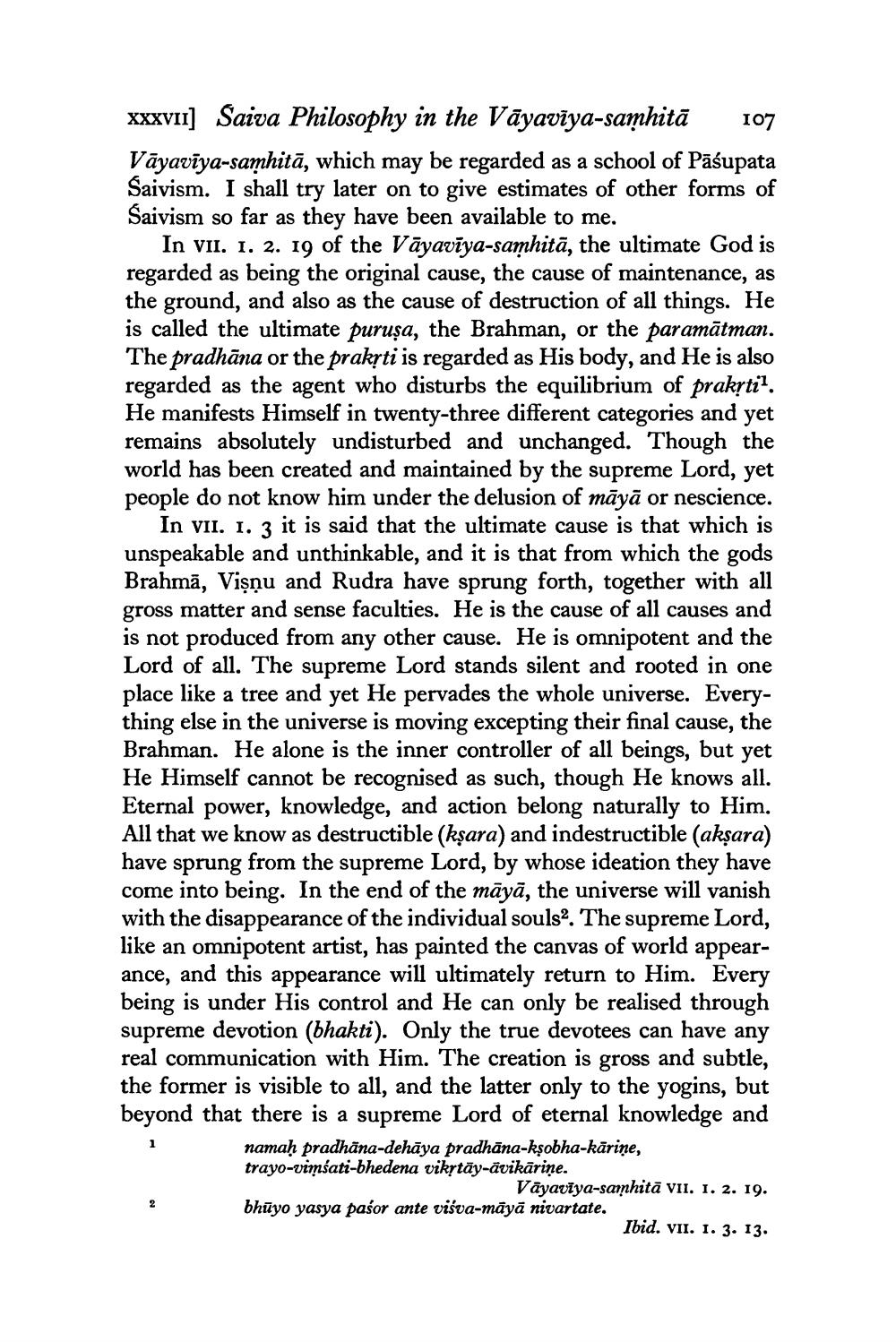________________
XXXVII] Saiva Philosophy in the Vāyavīya-samhitā 107 Vāyavīya-samhitā, which may be regarded as a school of Pāśupata Saivism. I shall try later on to give estimates of other forms of Saivism so far as they have been available to me.
In vii. 1. 2. 19 of the Vāyavīya-samhitā, the ultimate God is regarded as being the original cause, the cause of maintenance, as the ground, and also as the cause of destruction of all things. He is called the ultimate puruṣa, the Brahman, or the paramātman. The pradhāna or the prakyti is regarded as His body, and He is also regarded as the agent who disturbs the equilibrium of praksti?. He manifests Himself in twenty-three different categories and yet remains absolutely undisturbed and unchanged. Though the world has been created and maintained by the supreme Lord, yet people do not know him under the delusion of māyā or nescience.
In VII. 1. 3 it is said that the ultimate cause is that which is unspeakable and unthinkable, and it is that from which the gods Brahmā, Vişnu and Rudra have sprung forth, together with all gross matter and sense faculties. He is the cause of all causes and is not produced from any other cause. He is omnipotent and the Lord of all. The supreme Lord stands silent and rooted in one place like a tree and yet He pervades the whole universe. Everything else in the universe is moving excepting their final cause, the Brahman. He alone is the inner controller of all beings, but yet He Himself cannot be recognised as such, though He knows all. Eternal power, knowledge, and action belong naturally to Him. All that we know as destructible (kşara) and indestructible (akşara) have sprung from the supreme Lord, by whose ideation they have come into being. In the end of the māyā, the universe will vanish with the disappearance of the individual souls?. The supreme Lord, like an omnipotent artist, has painted the canvas of world appearance, and this appearance will ultimately return to Him. Every being is under His control and He can only be realised through supreme devotion (bhakti). Only the true devotees can have any real communication with Him. The creation is gross and subtle, the former is visible to all, and the latter only to the yogins, but beyond that there is a supreme Lord of eternal knowledge and
namaḥ pradhāna-dehāya pradhāna-kşobha-kärine, trayo-vimsati-bhedena viktāy-ävikärine.
Vayavīya-samphitā vii. I. 2. 19. bhūyo yasya paśor ante viśva-māyā nivartate.
Ibid. VII. 1. 3. 13.




